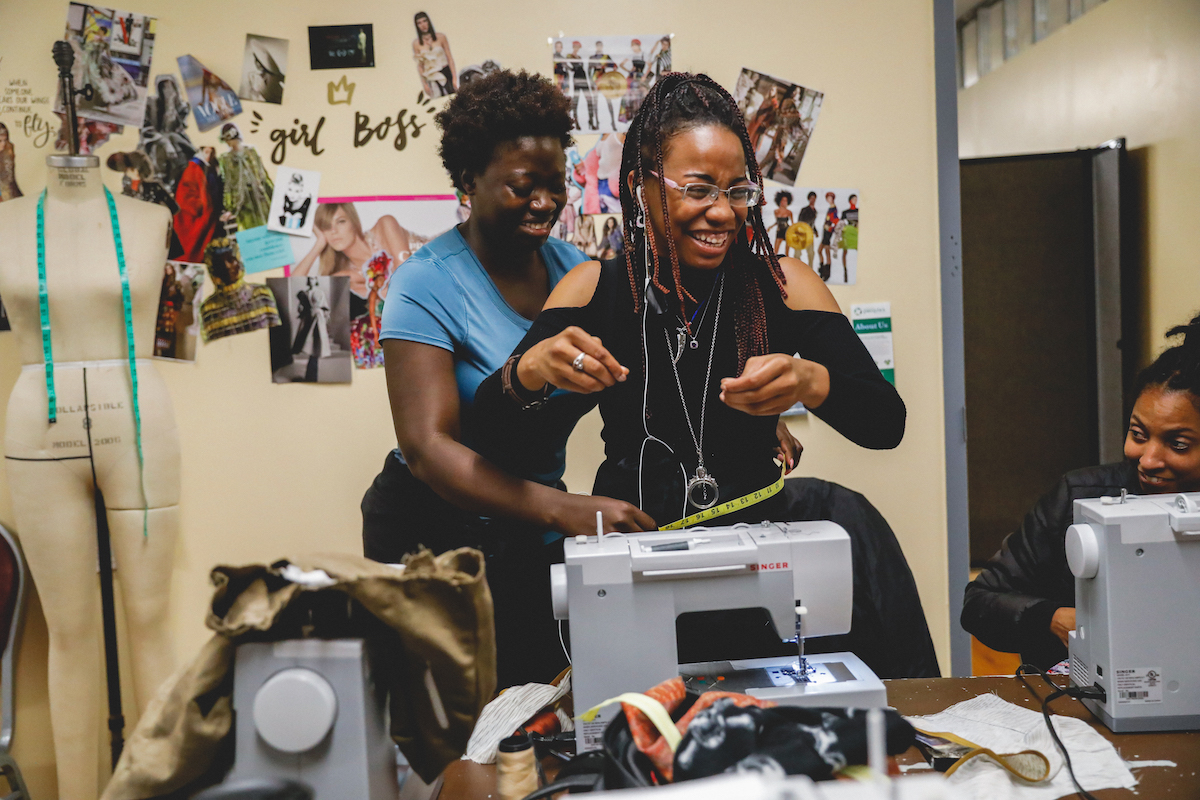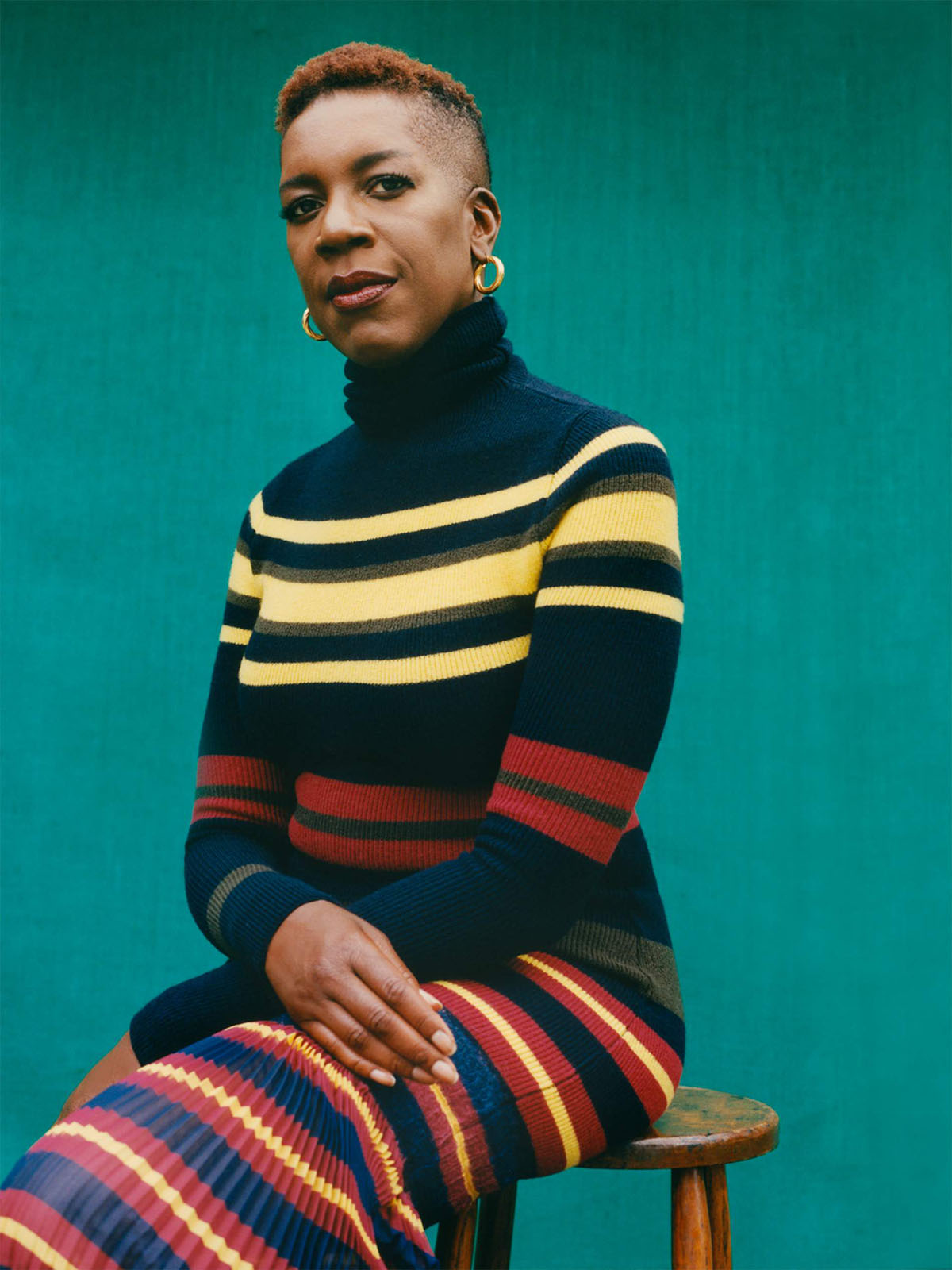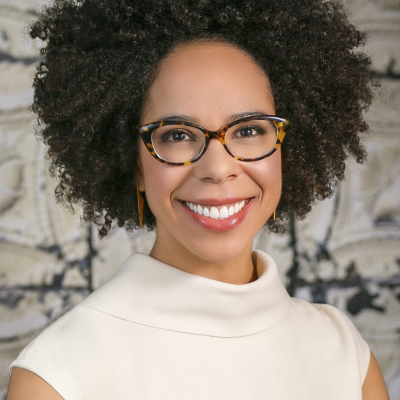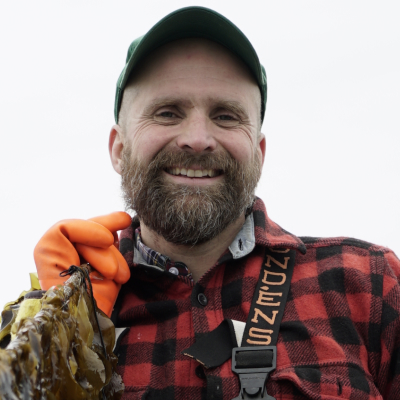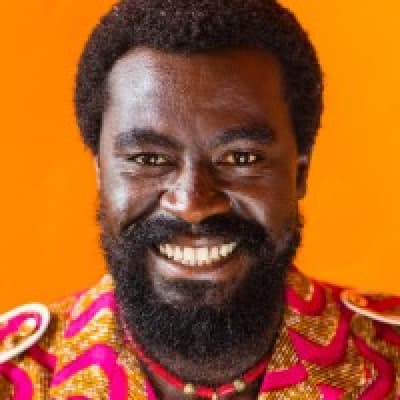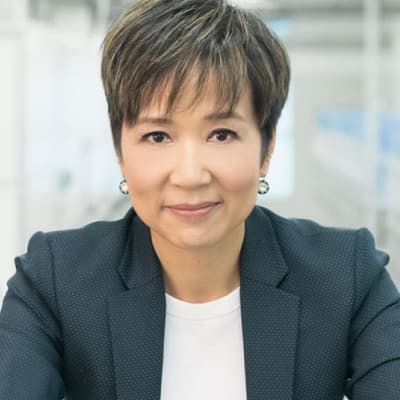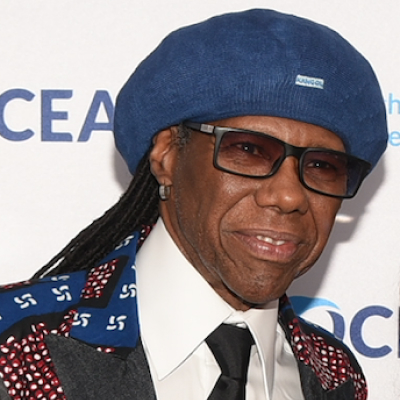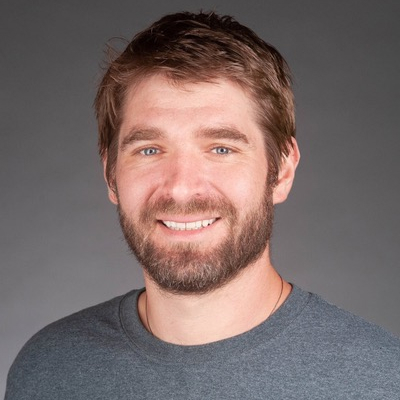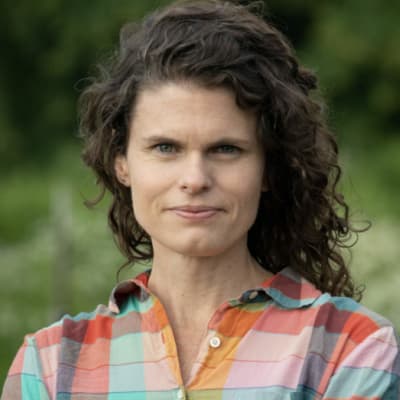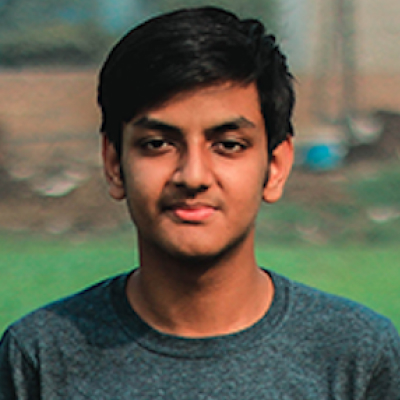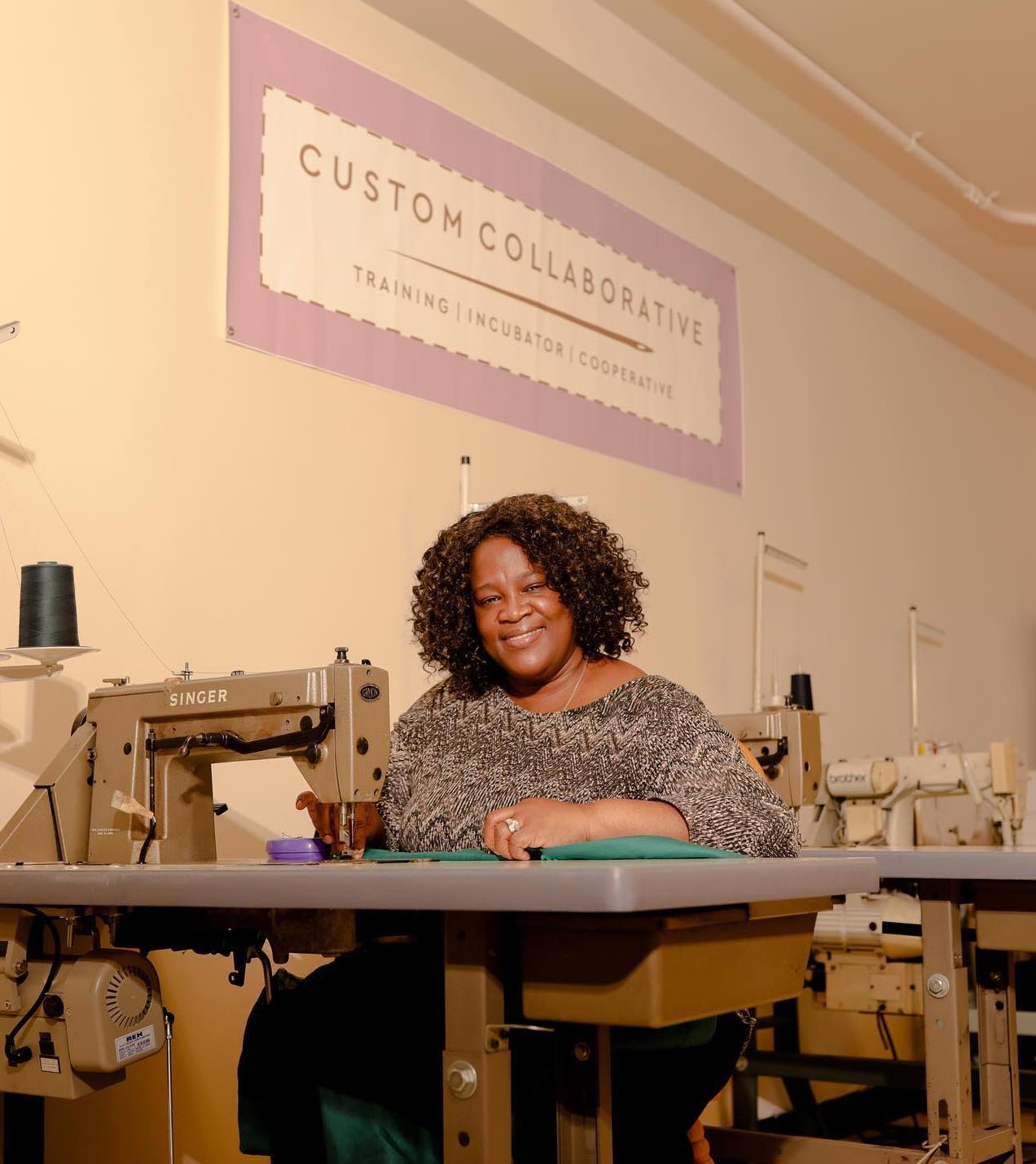
In 2015, Ngozi Okaro founded Custom Collaborative, a NYC-based business development program that trains and empowers women from immigrant, BIPOC, and low income communities to launch careers in sustainable fashion. Their Training Institute features a free 14-week course teaching the craft, technique and business of garment-making, which includes education on environmental impact (all creations are made from repurposed and upcycled textiles), ethical fashion and receiving safe, living-wage work. In 2020, a group of graduates launched the Fashion That Works Production, a worker-owned cooperative in Harlem that manufactures garments, accessories, and home goods for local fashion brands.
The Custom Collaborative team also offers ambassador, internship and volunteer opportunities, and conducts anti-racism training, furthering their mission to create a more inclusive and equitable industry.
—Charlotte DeFazio
What initially inspired you to launch Custom Collaborative?
I was struck by how many people wanted good jobs in fashion, and the relatively few paths to get those jobs. I also encountered dozens of women who would pay well to have good quality clothes that fit their bodies and styles. I personally worked with a dressmaker to create made-to-measure clothes for me, and advising her on her business made me think of a possible bigger picture that could meet many people’s needs.
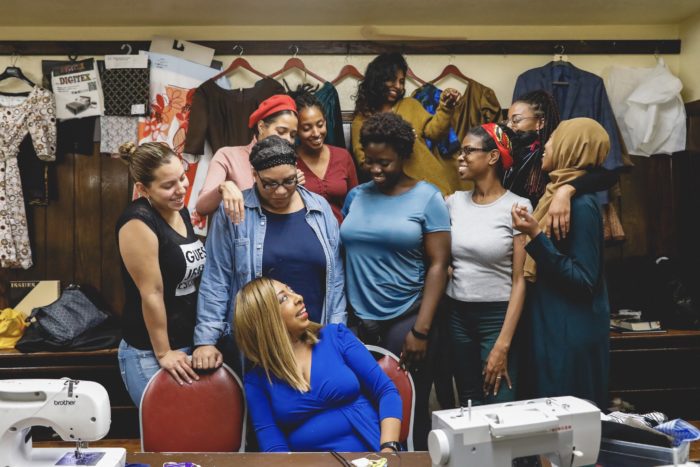
Who makes up your teaching staff at the Training Institute?
We have an amazing new instructor, Delia Alleyne, who has taught fashion at the university level and worked with industry bright lights. We also have guest instructors who teach specialized topics. Custom Collaborative’s Training Institute business topics are taught by Veronica Jones, our longtime entrepreneurship coach and a star in her own right.
Where are your textiles sourced from and how is environmental impact included in your model?
Fashion businesses donate textiles to us. Contributors include Mara Hoffman, Carl Goldberg shirtmaker, Hanky Panky lingerie, and others. Most of the masks that we made in 2020 were of textiles from those three local businesses!
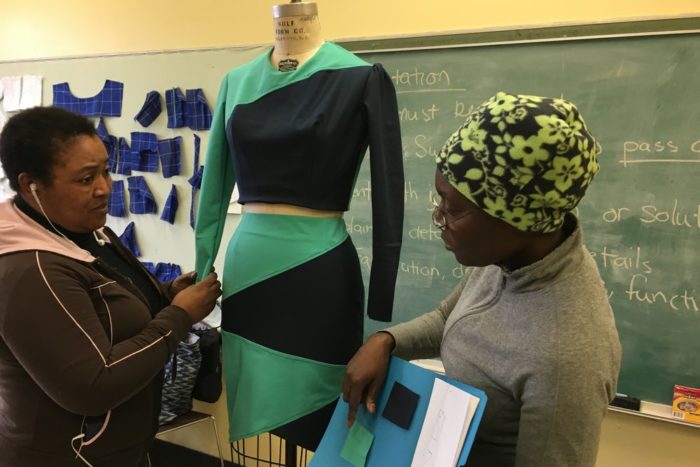
What have you noticed among your graduates?
Personal growth is huge. We strive to help people become leaders. Following training with us, women go on to get GEDs, enroll in English classes, and of course, start businesses. There’s a way that people’s power and self-confidence can be unlocked and activated when they’re in community with others like themselves, have the tools that they need, and are asked their opinion. We do that and more, and try to model that for other institutions.
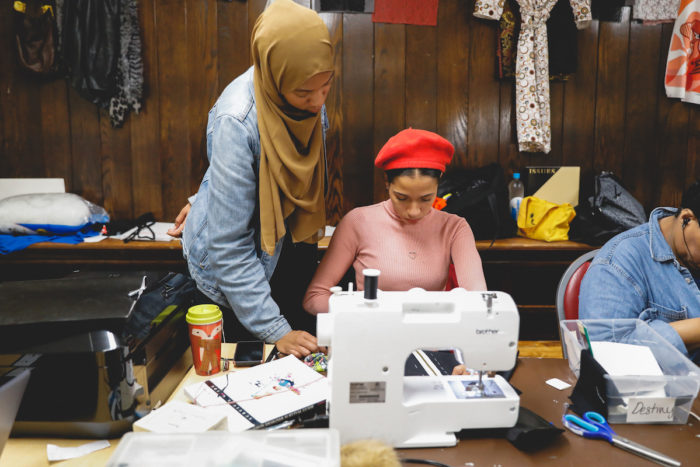
Ensuring that people have access to clothes that “fit and affirm all bodies” is part of Custom Collaborative’s mission statement. Why is this important to highlight?
It’s important for a couple of reasons. For one thing, if people have clothes that fit and that they love, they are less likely to throw them away after one, two, or zero wears. That’s really important for the environment. Also, clothing is one of our primary ways of expressing who we are. I think that all people should be able to express themselves in that basic way, regardless of whether they fit the relatively narrow template of sizes and gendered clothing that is available.
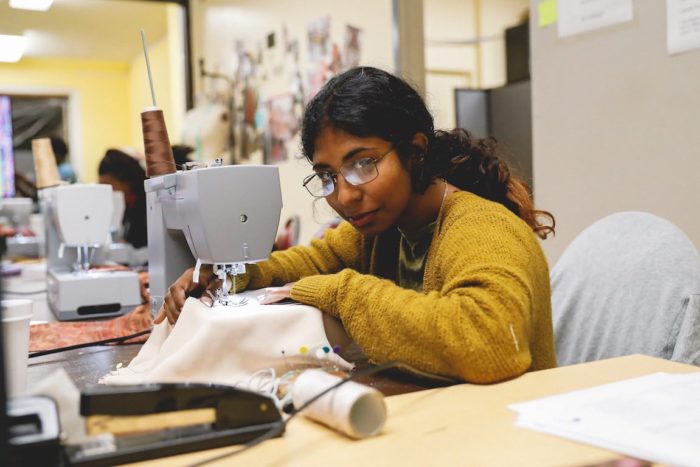
What is the Fashion That Works Production?
Fashion That Works Production is a worker-owned cooperative led by four women from four continents that Custom Collaborative incubates. They are accepting projects now.
What are you most excited about right now?
The billboard, obviously! Also, starting a new cohort of training institute students in the spring. We’ve revised our curriculum, and I’m excited to see the results in real time.
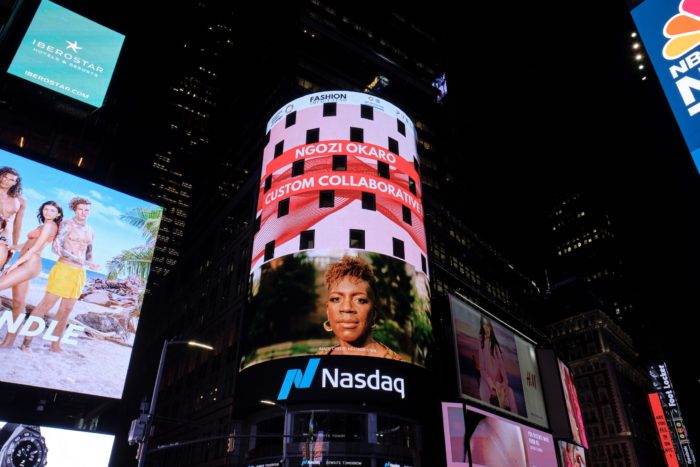
How can readers get involved and support your mission?
Visit us at customcollaborative.org. There, people can sign up to volunteer, donate money, and donate high-quality equipment and textiles. Fashion companies can also hire our participants, including as interns and apprentices. Email info@customcollaborative.org for hiring.

